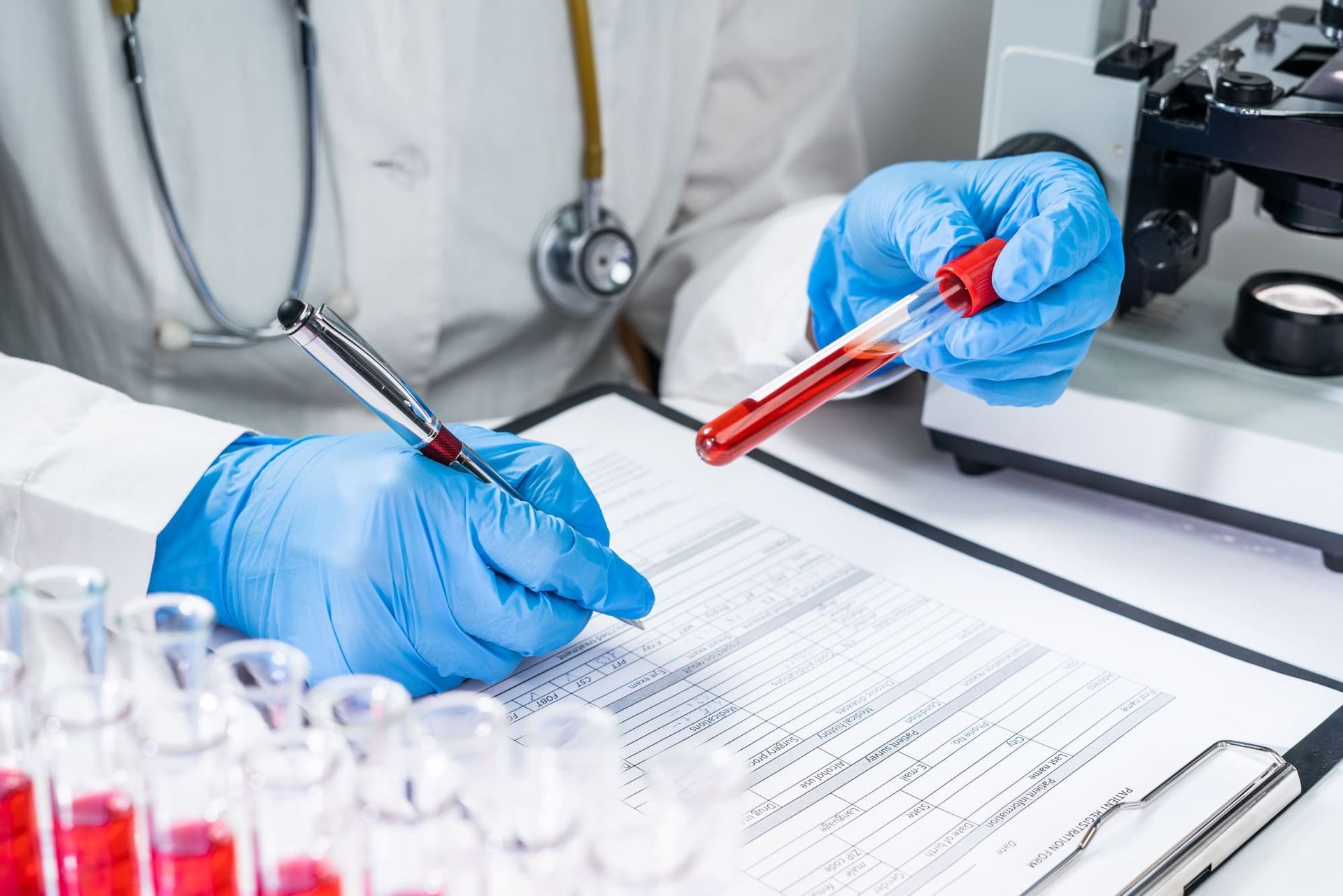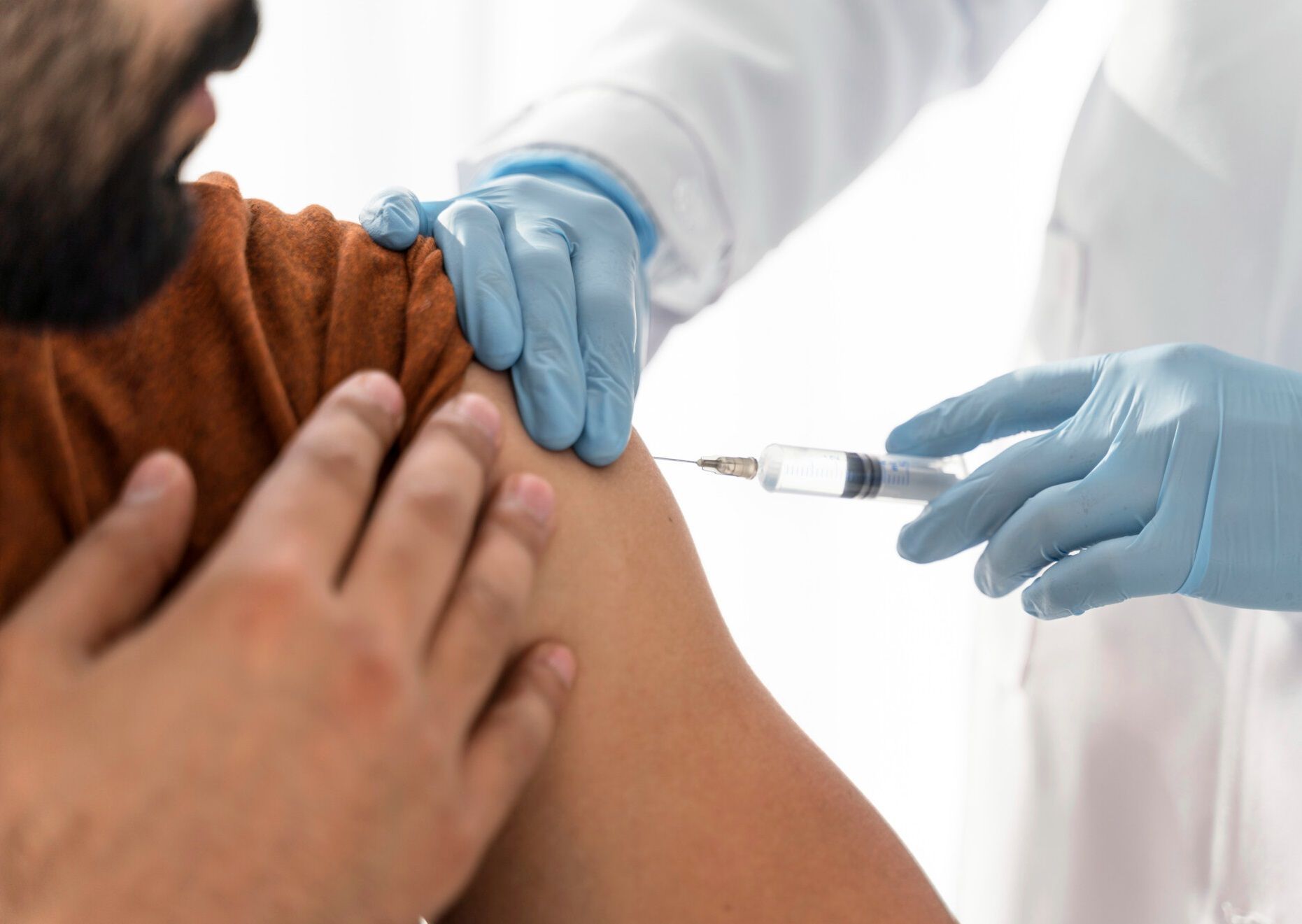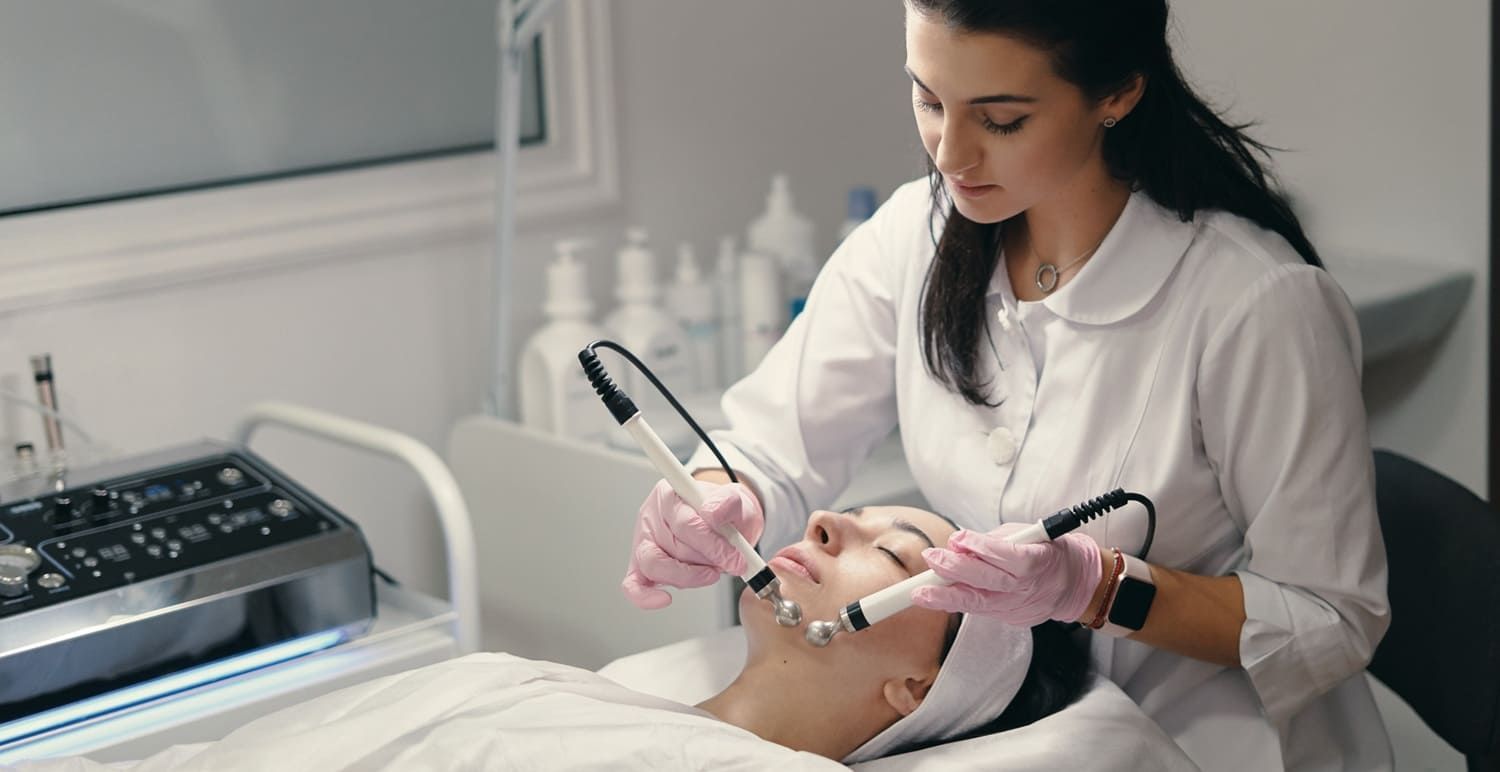HRT for Women Over 40: What You Should Know
As estrogen and progesterone levels shift during perimenopause and menopause, you might experience symptoms that impact your daily life, bone strength, and heart health. Understanding how Hormone Replacement Therapy (HRT) can help women over 40 restore hormonal balance, ease uncomfortable symptoms like hot flashes, and safeguard your long-term well-being can truly transform how you manage this life stage.

Hormone Replacement Therapy: Benefits, Risks, and Timing
- Hormone replacement therapy (HRT) is effective in alleviating menopausal symptoms such as hot flashes and vaginal dryness, and can help prevent bone loss and reduce fracture risk. However, it carries potential risks including increased chances of breast cancer, blood clots, and stroke. The balance of benefits and risks is generally more favorable for women who initiate HRT before age 60 or within 10 years of menopause.
- This research supports the article's overview of HRT's dual nature, emphasizing symptom relief, long-term health protection, and the critical role of individual risk assessment and timing in treatment decisions.
In this guide, we’ll walk you through the stages of perimenopause and menopause, explore your HRT options, help you weigh the benefits and risks, introduce Pure Health & Hormone Center’s personalized approach in Tampa, and share complementary strategies for hormone balance. Whether you’re looking for relief from hot flashes or want to protect your bone health, you’ll find practical insights here to guide your journey.
Understanding Perimenopause and Menopause: Hormonal Shifts After 40
Perimenopause and menopause mark a natural transition in a woman's reproductive life, characterized by declining hormone production from the ovaries. These fluctuations in estrogen and progesterone can lead to a range of symptoms and health changes. This journey typically begins with irregular cycles and concludes 12 months after your last menstrual period. Recognizing these stages is key to timely interventions that can ease discomfort and address potential long-term health concerns.
What Is Perimenopause and What Symptoms Can You Expect?
Perimenopause is the phase leading up to menopause, where estrogen levels can fluctuate unpredictably, causing your menstrual cycles to become irregular. You might experience symptoms like hot flashes, night sweats, mood swings, and changes in your sex drive as your ovaries’ egg supply diminishes. For instance, studies show that over 75% of women in perimenopause report sleep disturbances linked to these hormonal shifts. Understanding these hallmark fluctuations is the first step toward finding relief through lifestyle adjustments and, when appropriate, low-dose HRT.
How Does Menopause Affect Women Over 40? Diagnosis and Health Impacts
Menopause signifies the permanent end of ovulation, officially diagnosed after 12 consecutive months without a period, and is a result of the ovaries’ egg supply running out. The significant drop in estrogen and progesterone can affect bone health, blood vessel function, and metabolism, increasing your risk for osteoporosis and heart disease. Your doctor can typically diagnose menopause based on your symptoms and menstrual history, sometimes using blood tests to check hormone levels. Recognizing menopause early allows for proactive strategies to support your bone strength and cardiovascular health.
What Are Common Menopausal Symptoms Like Hot Flashes and Sleep Disturbances?
Vasomotor symptoms, such as hot flashes and night sweats, occur when changes in estrogen levels affect the brain's temperature regulation center. These episodes can last for years and often disrupt sleep, leading to daytime fatigue. You might also experience vaginal dryness, mood swings, and what many call "brain fog." Addressing these symptoms promptly with a combination of HRT and lifestyle changes can significantly improve your sleep and reduce the frequency and intensity of hot flashes.
What Long-Term Health Risks Are Associated with Menopause?
After menopause, the lack of ovarian hormones can speed up bone loss, increasing the risk of osteoporosis and fractures. Changes in blood vessels can also raise the likelihood of heart disease. Postmenopausal women can lose bone mineral density at a rate of about 2–3% per year, and the risk of cardiovascular mortality rises notably after age 55. These physiological changes highlight the importance of interventions, whether medical or lifestyle-based, to maintain bone strength and vascular health.
Exploring Your Hormone Replacement Therapy Options for Women Over 40
Hormone Replacement Therapy (HRT) involves supplementing declining estrogen and progesterone levels to alleviate symptoms and offer protective health benefits. Options range from standard pharmaceutical formulations to customized bioidentical hormone protocols, all designed to fit your individual needs and health profile.
What Is Estrogen Therapy and How Can It Help You?
Estrogen Therapy (ET) replaces estradiol to help stabilize your body's temperature regulation and preserve bone density. When prescribed alone for women without a uterus, estradiol works on bone and blood vessels, helping to slow bone loss and improve cholesterol levels. For example, using a daily transdermal estradiol patch can reduce hot flashes by up to 80% in just a few weeks.
When Is Progesterone Necessary in Hormone Replacement Therapy?
Progesterone is added to HRT for women who still have their uterus to protect the uterine lining from overgrowth caused by estrogen. It helps prepare the endometrium for potential pregnancy, preventing abnormal cell changes. Taking micronized progesterone, either on a schedule or continuously, ensures uterine safety while allowing you to benefit from estrogen's systemic effects.
What Is Bioidentical Hormone Replacement Therapy (BHRT) and How Is It Different?
Bioidentical Hormone Replacement Therapy (BHRT) uses hormones derived from plants that are structurally identical to your body's own estrogen and progesterone. This molecular similarity allows them to bind to your hormone receptors effectively, often with less potential for immune reactions. Unlike traditional HRT, BHRT can be custom-compounded into specific dosages based on your hormone test results. Many women find BHRT offers fewer side effects and a more personalized approach to hormone balance.
What Are the Different Ways to Take HRT: Pills, Patches, Gels, Creams, and Vaginal Rings?
Here’s a look at common HRT delivery methods, outlining their key features and benefits.
| Delivery Method | How Often You Take It | Main Benefit | Things to Consider |
|---|---|---|---|
| Oral Pills | Daily | Easy to take | Can affect liver function and clotting factors |
| Transdermal Patches | Twice weekly | Consistent hormone levels | May cause skin irritation |
| Topical Gels | Daily | Flexible dosing | Requires consistent application |
| Vaginal Creams | 2–3 times weekly | Targets vaginal dryness | Limited effect on the rest of the body |
| Vaginal Rings | Every 90 days | Long-lasting relief | Comfort can vary |
Each method has its own way of working in your body and suits different preferences, helping you and your doctor choose the best format for your treatment goals.
Discover the Key Benefits of Hormone Replacement Therapy for Women Over 40
HRT can provide quick relief from bothersome symptoms and offer long-term protection for your body by replenishing your natural hormone levels. The benefits include stabilizing temperature control, preserving bone health, supporting your heart, and even improving cognitive function and sexual well-being.
How Does HRT Help Relieve Menopausal Symptoms Like Hot Flashes and Mood Swings?
By restoring estrogen levels, HRT helps regulate your body's temperature control, significantly reducing hot flashes and night sweats. Progesterone can also help calm your nervous system, easing mood swings and anxiety. Many women notice a reduction of up to 75% in symptom frequency within three months of starting HRT.
Can HRT Improve Bone Density and Lower Your Risk of Osteoporosis?
Estrogen therapy works by slowing down bone breakdown and encouraging bone formation, which can lead to a noticeable increase in bone mineral density. Studies show a 5–7% gain in bone density over two years, potentially reducing the risk of fractures by 30–50%. Starting HRT earlier in menopause maximizes these bone-protective benefits during a critical time.
What Cardiovascular Health Advantages Does HRT Offer?
Estrogen helps blood vessels relax by increasing nitric oxide production and can improve your cholesterol levels by raising HDL ("good") cholesterol and lowering LDL ("bad") cholesterol. Starting HRT within ten years of menopause may lower your risk of coronary heart disease by up to 40%. Careful selection of candidates and ongoing monitoring ensure that the heart benefits outweigh any potential risks.
Long-Term Hormone Therapy Benefits for Bone and Cardiovascular Health
- A 20-year follow-up study on hysterectomized women demonstrated that long-term transdermal estradiol therapy, when initiated close to menopause, provided beneficial effects on bone density, lipid profiles, and blood pressure. These findings suggest that early and sustained hormone therapy can contribute to preserving bone strength and vascular function, with benefits outweighing risks in the studied cohort.
- This research supports the article's claims about HRT's positive impact on bone density and cardiovascular health, reinforcing the idea that early intervention can lead to sustained protective effects.
How Does HRT Support Mental Clarity, Sleep Quality, and Sexual Wellness?
Estrogen plays a role in brain function, influencing neurotransmitters that affect memory, focus, and mood. Progesterone can also promote better sleep. For sexual health, estrogen can help restore vaginal tissue, making intercourse more comfortable and potentially improving sexual satisfaction.
Understanding the Risks and Side Effects of Hormone Replacement Therapy After 40
While HRT offers many benefits, it's important to be aware of potential risks and side effects. These need to be considered alongside your symptoms and long-term health goals. Your individual health factors will guide whether HRT is the right choice for you and for how long.
What Are the Potential Cancer Risks Linked to HRT?
Using combined estrogen and progestogen therapy for five years or more might slightly increase the risk of breast cancer. For women with a uterus, estrogen used without progesterone can increase the risk of endometrial cancer, but this is effectively managed by adding progesterone. Regular screenings and using the lowest effective dose help keep these risks manageable.
Women's Health Initiative Findings on Hormone Therapy Risks and Re-evaluation
- The 2002 Women's Health Initiative (WHI) study, a large randomized controlled trial, initially reported increased risks of coronary heart disease, breast cancer, stroke, and pulmonary embolism with combined estrogen and progestin therapy, leading to the early termination of one study arm. Subsequent analyses and re-evaluations have clarified that these risks are generally lower for younger women who initiate HRT closer to the onset of menopause, suggesting that for healthy women under 60 experiencing troublesome symptoms, the benefits may outweigh the risks.
- This citation directly addresses the article's discussion of potential cancer risks and the risk of blood clots and stroke, providing the foundational research (WHI) and acknowledging the evolving understanding of its implications, especially concerning the timing of HRT initiation.
How Can HRT Affect Your Risk of Blood Clots and Stroke?
Taking oral estrogen can increase the production of clotting factors in the liver, potentially doubling the risk of blood clots in the legs or lungs and slightly raising the risk of stroke. However, transdermal HRT (patches, gels) bypasses this liver effect and hasn't been linked to an increased risk of blood clots in studies. If you have a history of blood clots or stroke, your doctor will carefully consider the best delivery method for you.
Who Should Avoid HRT Based on Their Medical History?
HRT is not recommended for women with a history of hormone-sensitive cancers, untreated uterine hyperplasia, active liver disease, or a history of blood clots or stroke. High blood pressure or high triglyceride levels can also make HRT unsafe. In these situations, non-hormonal treatments and lifestyle changes are prioritized.
How Can You Make an Informed Decision About Starting HRT?
Making an informed decision involves a thorough discussion with a qualified healthcare provider about your specific symptoms, medical history, and personal comfort level with potential risks. This evaluation may include hormone testing, bone density scans, and a review of your cardiovascular health. Together, you and your provider can determine a treatment plan that aligns with your health goals and safety needs.

How Pure Health and Hormone Center Personalizes HRT for Women Over 40 in Tampa
At Pure Health & Hormone Center, we provide a customized Hormone Replacement Therapy program that starts with comprehensive testing and continues with ongoing support, ensuring every patient in Tampa achieves optimal hormonal balance.
What Does the Personalized HRT Consultation and Testing Process Involve?
Your initial visit at Pure Health & Hormone Center includes a detailed review of your health history and advanced hormone testing, measuring levels of estradiol, progesterone, FSH, and cortisol. This thorough diagnostic process helps us identify your unique hormonal imbalances and create a personalized treatment plan.
How Is a Custom HRT Treatment Plan Created and Monitored?
Based on your test results, our clinicians will develop an HRT regimen specifying the exact hormones, dosages, and delivery methods best suited for you. We’ll schedule follow-up blood tests at 8 and 12 weeks to check your hormone levels and how you're responding, allowing us to fine-tune your dosage for the best results and minimal side effects.
What Success Stories Do Women in Tampa Share About Their HRT Experience?
Many women in Tampa have experienced life-changing results with our HRT program. They report better sleep, reduced night sweats, a return of their libido, and renewed energy for daily life. One patient shared, “After just six weeks on my custom plan, my hot flashes disappeared and my mood felt so much more stable,” highlighting the real impact of personalized care.
How Can You Book a Consultation or Hormone Testing at Pure Health & Hormone Center?
Ready to start your personalized hormone journey? Reach out to schedule a consultation with the expert team at Pure Health & Hormone Center. Comprehensive testing and evaluation are the first steps toward finding relief and improving your long-term health. Request a personalized HRT consultation to book your diagnostic appointment today.
Natural Alternatives and Complementary Therapies to Support Hormone Balance After 40
Alongside HRT, making lifestyle changes and exploring holistic services can further support your hormonal equilibrium and overall sense of well-being.
What Lifestyle Adjustments Can Help Manage Menopausal Symptoms?
Engaging in regular weight-bearing exercise can help maintain bone density and reduce hot flashes. A balanced diet rich in plant compounds like those found in flaxseed and soy can also help modulate estrogen levels. Stress-management techniques such as yoga and meditation can help stabilize cortisol, which in turn can ease mood swings and improve sleep.
Which Natural Remedies Are Often Used for Perimenopause and Menopause?
Herbal supplements like black cohosh, red clover, and chasteberry may offer mild estrogen-like effects that can ease hot flashes and night sweats. Omega-3 fatty acids and magnesium can support nerve health and improve sleep quality. It’s always best to consult with your healthcare provider before combining any supplements with your HRT plan.
How Do Complementary Wellness Services at Pure Health & Hormone Center Enhance Your Hormone Health?
Pure Health & Hormone Center offers a range of integrative services, including high-quality IV nutrient therapy, targeted peptide treatments, and biofeedback. These can help boost your body's resilience and optimize your endocrine system. They work alongside HRT by addressing potential nutrient gaps and counteracting the effects of stress on hormone production.
When Is It a Good Idea to Combine Natural Alternatives with HRT?
If you're experiencing mild to moderate symptoms, you might start with lifestyle changes and natural remedies, adding HRT if your symptoms aren't fully managed. You can also choose to integrate natural therapies with HRT from the beginning, especially if you're dealing with significant hot flashes or sexual health concerns, to potentially enhance the overall effectiveness of your treatment.
Your Top Questions About HRT for Women Over 40, Answered
Women considering hormone therapy often have questions about how long to take it, its effects on weight, the best timing for starting, and what testing is involved to ensure they make informed decisions.
How Long Can Women Safely Continue Hormone Replacement Therapy?
The duration of HRT is personalized based on your symptoms and risk factors. Many women continue therapy for 5–10 years under close medical supervision, with regular check-ins to ensure it remains beneficial and safe for you.
Can HRT Help with Weight Gain During Menopause?
Yes, HRT can support your metabolism by helping to maintain lean muscle mass and improve how your body uses insulin. This can be a helpful factor in managing menopausal weight gain, especially when combined with a healthy diet and regular exercise.
What Are the Signs That Indicate It Might Be Time to Start HRT?
If you're experiencing persistent hot flashes, disrupted sleep, vaginal dryness, or mood swings that significantly affect your daily life, it may be time to discuss HRT with your doctor.
How Is Hormone Testing Done, and What Information Does It Provide?
Hormone testing typically involves a blood draw or saliva sample to measure levels of key hormones like estrogen, progesterone, FSH, LH, and cortisol. These results reveal any deficiencies or imbalances, guiding the precise dosing and monitoring of your HRT.
Navigating perimenopause and menopause after 40 can be empowering when you understand your options, carefully consider the benefits and risks, and seek expert guidance. With personalized HRT, supportive complementary therapies, and a focus on your long-term health, you can regain your energy, protect your bone density, and maintain your cardiovascular wellness. Partnering with a specialized clinic like Pure Health & Hormone Center ensures you receive tailored support every step of the way.


















